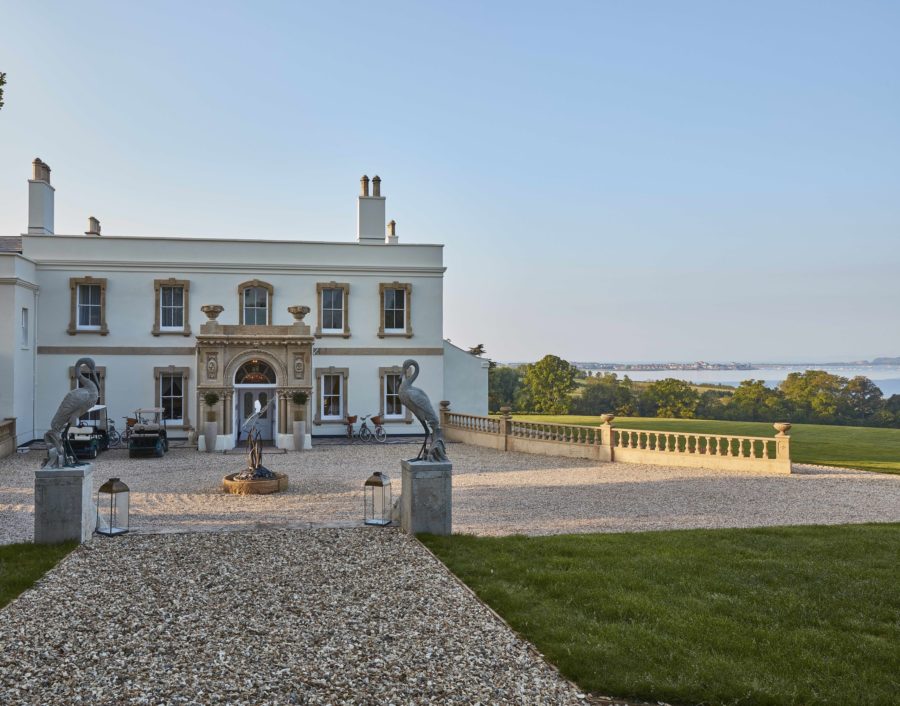November | Travel
Eco Vineyard Stays
Stylish, sustainable and there’s no need to drive home – check out our favourite wineries-with-rooms
Susan Ward DaviesEnglish sparkling wine has been giving Champagne a run for its money for years now, and despite the fact that parts of the country are awash with vineyards (now up to 943 – and counting- in Great Britain), it is still relatively under the radar. Drinking wine – like everything else – has a carbon footprint but make it homegrown and buy from a sustainable vineyard, and you reduce that impact considerably. Add to that the fact that our wines are becoming world-beaters, with terroir and climate to equal, or rival (due to global warming) that of Champagne, and the knowledge that many of our vineyards are setting the bar for sustainability excellence, and you have a great excuse to support the industry by staying the night and stocking up for Christmas.
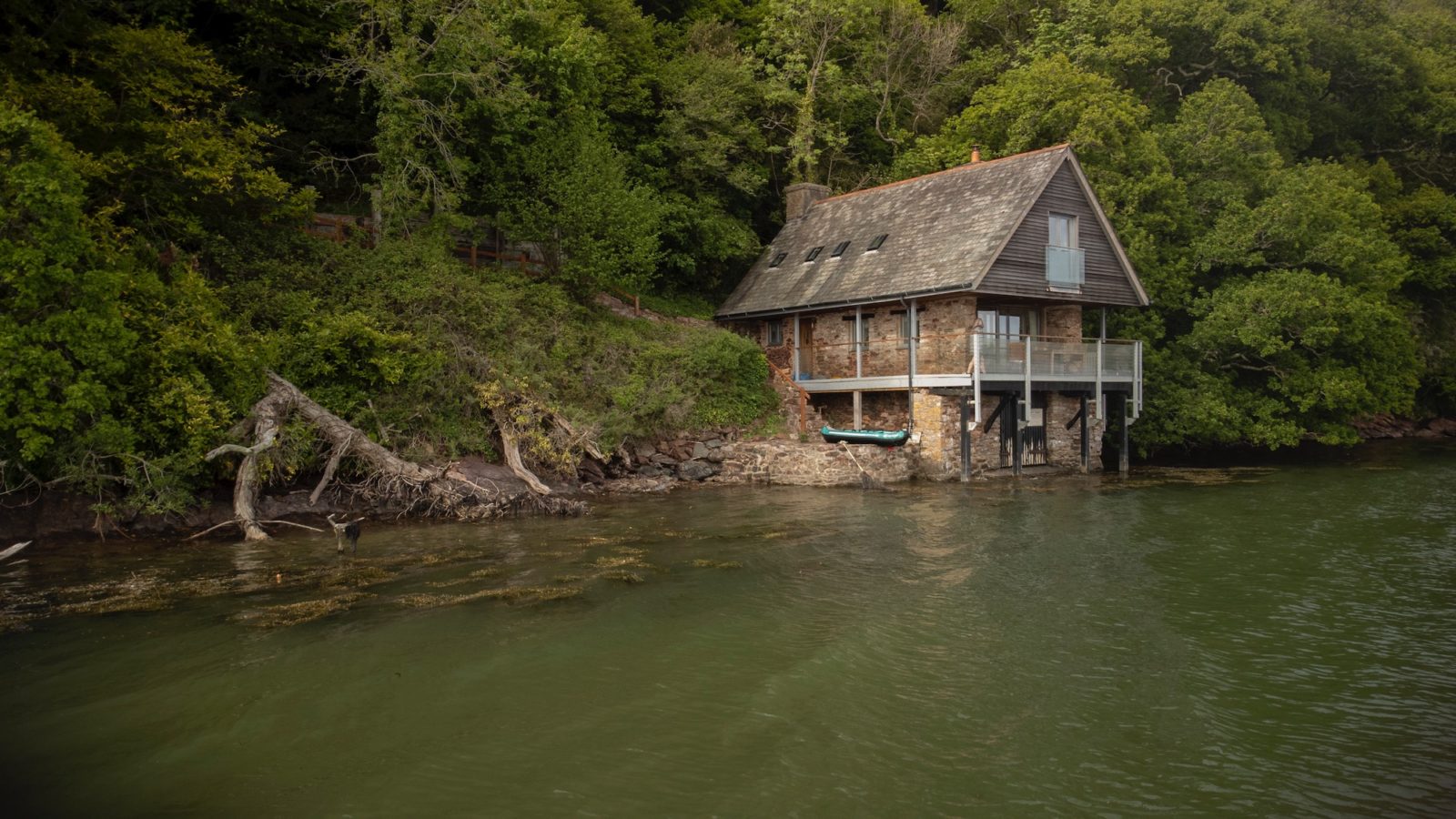
Sandridge Barton, Stoke Gabriel, Devon
Fancy a boathouse stay and a vineyard safari? You can do both here, sleeping in the two- bedroom, 18th century boathouse, perched among beech trees, with French windows opening on to a balcony overlooking the River Dart. The safari will give you the full lowdown on all things grape-growing related, or you can book a simple DIY tasting if time is short. Larger groups can take over the elegantly styled Georgian house sleeping 12, with its indoor pool and games room, or a four-bedroom farmhouse, with a sunny garden and orchard views.
The neighbouring Sharpham Estate was one of the pioneers of English wine, dating back to the 1980s. In 2020, production was moved to a state -of- the-art winery on the Sandridge Barton estate, and the original vineyard is being rewilded. Sandridge Barton’s 450 acres are made up of farmland, two vineyards, a shop (Sharpham Dairy cheese, hampers, cider and wine), and an excellent restaurant, Circa, inside the former milking parlour, serving inventive (pineapple weed meringue, anyone?), mostly organic, locally grown/reared, seasonal produce from no-dig gardens.
Eco credentials:
As members of Sustainable Wines of Great Britain and the Country Stewardship scheme, they plant tree and wildflower meadows, install bat and bird boxes, ban pesticides and use an aerobic digestion waste system. Energy comes from solar panels and air source heat pumps, they have their own herd of South Devon cows, with fish bought from day boats (fishermen who go out in the morning and bring back that day’s catch).
Vegetables are grown in an agro-ecological (sustainable farming that works with nature) market garden; honey comes from Sandridge hives; wine by-products, such as grape skins, are fermented and used in cooking; and they are big on lacto-fermentation (traditional pickling without vinegar), both good for the gut and food preservation.
Boathouse, £1100 for four nights (sleeps four), Lower Well Farmhouse, £1550 for three nights (sleeps eight), Sandridge Barton House, £2300 for four nights, sleeps 12
Top Tipple: Sharpham Classic Cuvée
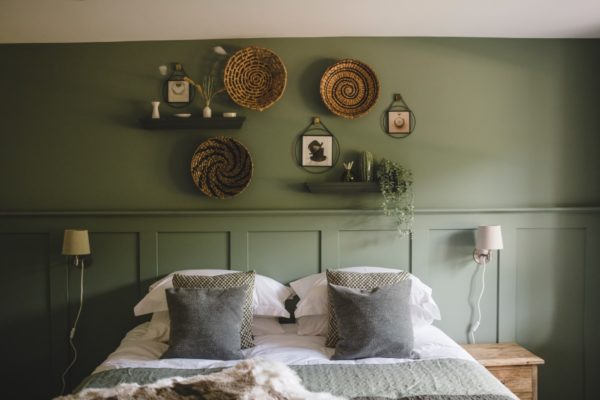
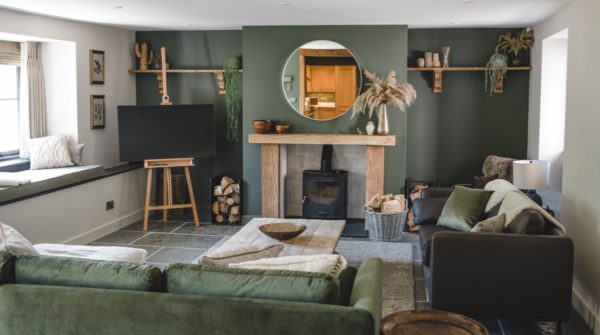
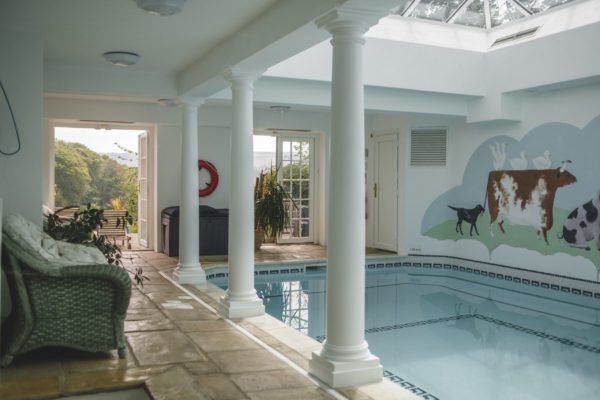
Images courtesy of Sandridge Barton
Ryedale Vineyard, Westow, North Yorkshire
One of the most northerly commercial vineyards in the UK, Ryedale is an award-winning, family- run enterprise growing 18 different grape varieties. Guided tours, wine, cider and cheese sampling, and even live theatre and brass band events make for a very Yorkshire experience, and you can stay in one of two cosy rooms in the old beamed farmhouse, with breakfast in bed on offer, or a full English in the dining room. Yorkshire’s ‘food capital’, Malton, is six miles away, walkers will love tramping around the wild and windswept moors, and Bridgerton fans should note that magnificent Castle Howard, aka the Duke of Hastings’ Clyvedon Castle estate, is just eight miles north.
Eco credentials:
All aspects of wine production are done by hand, from pruning to bottle labelling. A small flock of Ryeland sheep ‘mows’ and fertilises the vineyard, and more boundary hedges, laid in the traditional method, eliminate the need for mechanical hedge-cutting and provide a home for birds, animals and insects. Regenerative pruning cuttings are mulched rather than burnt, and the vineyard operates a low-spray policy. They encourage wildflower growth between vines to attract pollinators, vineyard hives provide candles and honey, and meadowsweet – catnip for bees – flourishes in the bog garden, another wildlife-friendly habitat. The B&B uses refillable toiletries, breakfast is made using local produce, and everything is done to minimise environmental and wildlife impact.
Doubles from £130, B&B
Top tipple: Paradise sparkling wine
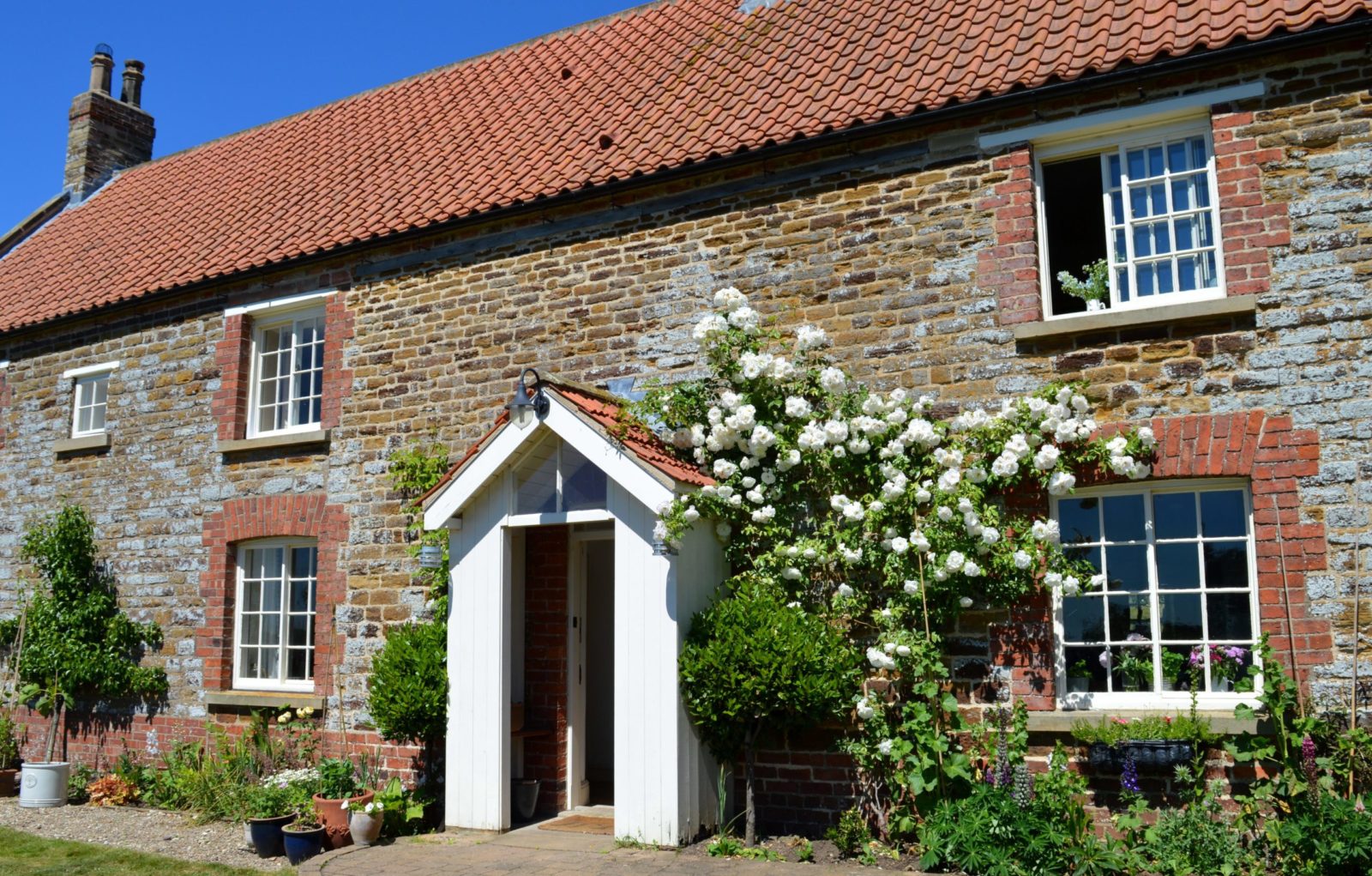
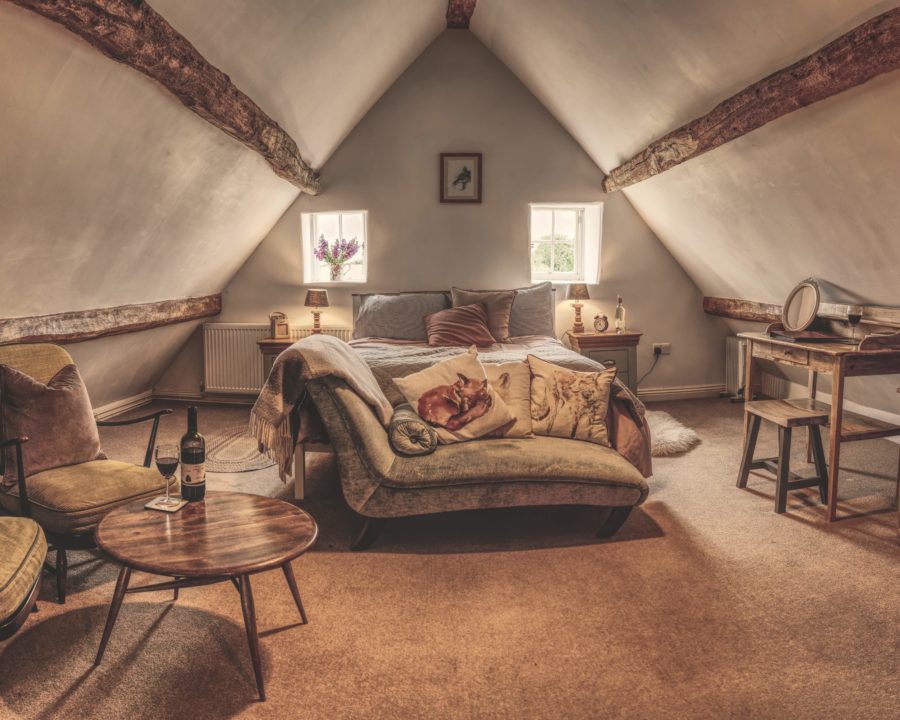
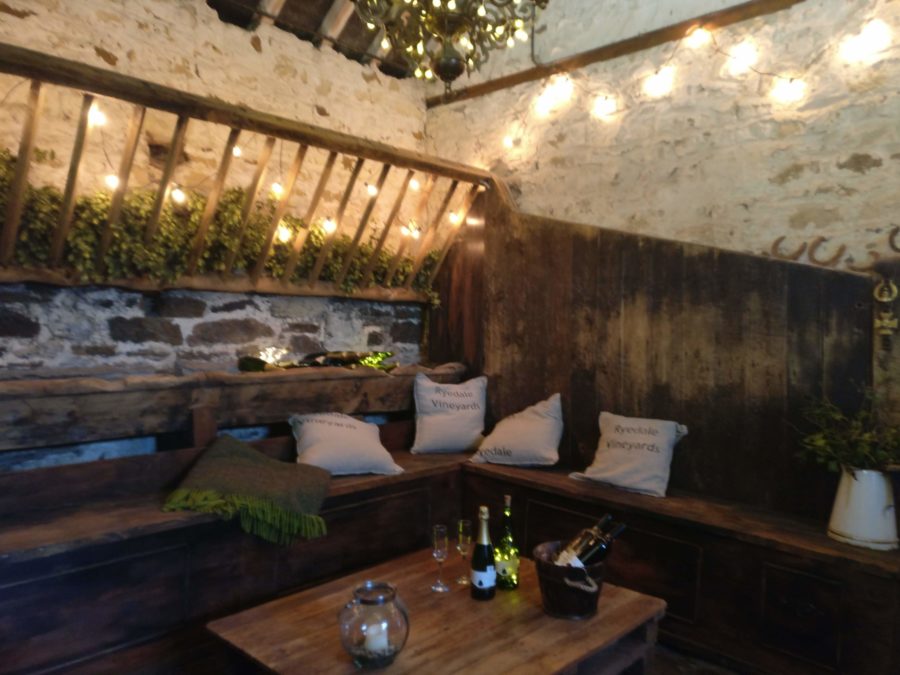
Images courtesy of Ryedale Vineyard
St Martin’s Vineyard & Winery, Isles of Scilly, Cornwall
If you’ve never been to the Scilly Isles you’ll be blown away by the Caribbean-grade sandy beaches, sub-tropical climate and exotic as well as local wildflowers. Little St Martin’s (just under a square mile) is one of the five inhabited Scilly Isles off England’s south-western tip, and the eponymous vineyard – the country’s smallest – is just a few minutes from beautiful Par Beach. Sleep in one of the two hand-crafted shepherd’s huts set in their own meadow, just three minutes from the white sands of Par Beach. With 2000 vines to manage, a cider press and their own beer production, it is something of a miracle that owners Holly Robbins and James Faulconbridge had time to build them to such high spec with proper kitchens, wifi, underfloor heating, power-showers, Swedish compost loos to conserve water, and crockery and cushions made by local artisans.
You get your own garden area, barbecue and loungers – for sunbathing or stargazing – a big thing here in winter months due to minimal light pollution. You can buy their wine, sparkling cider and beer, along with apple cider vinegar and blackberry liqueur on site, stock up with food supplies at the local shop five minutes away, or spread the love by dining out in one of the excellent local restaurants.
Eco credentials:
Fossil-fuel free since 2022, excess energy from their solar panels and on-site battery goes back to the grid, and they are carbon negative due to CO2 sequestration. A special bottle-washing machine means 100% of beers and ciders, and 90% of wine is in recycled bottles. A zero-burn policy avoids air pollution, with vineyard organic waste used as compost, and water collection aiding irrigation. No pesticides, herbicides and artificial fertilisers are used, and they make their own compost and seaweed mulches, adopt regenerative agriculture methods, with tree-planting and habitat boxes for birds and bats. Crop-protecting windbreaks are home to birdlife, and the tiny Scilly shrew keeps the insect pests at bay.
Bookings from Saturday – Saturday, £820, including wine tours and tastings.
Top tipple: St Martin’s Orion Seyval Blanc, the signature wine
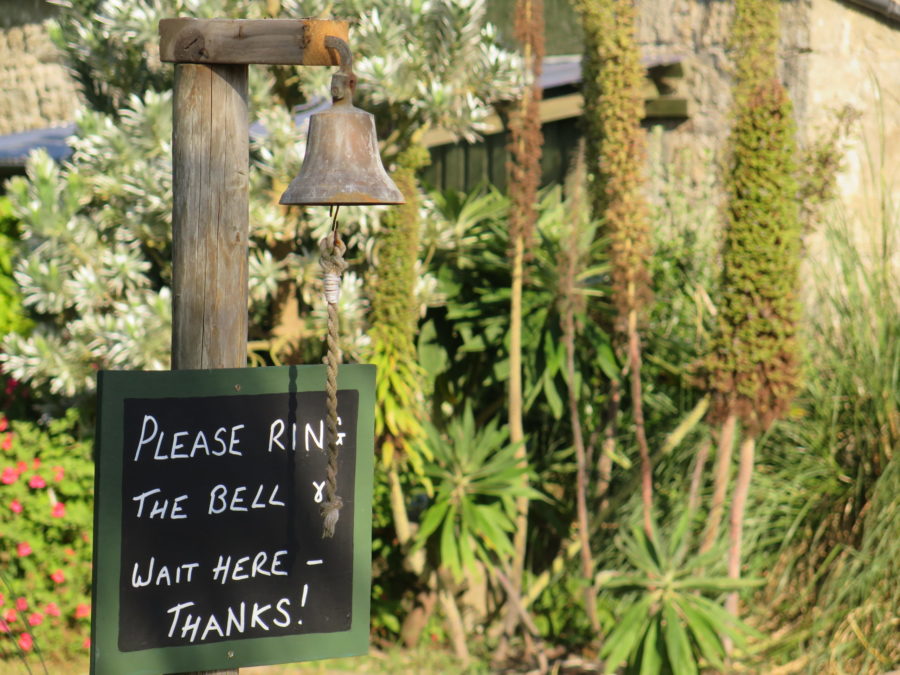
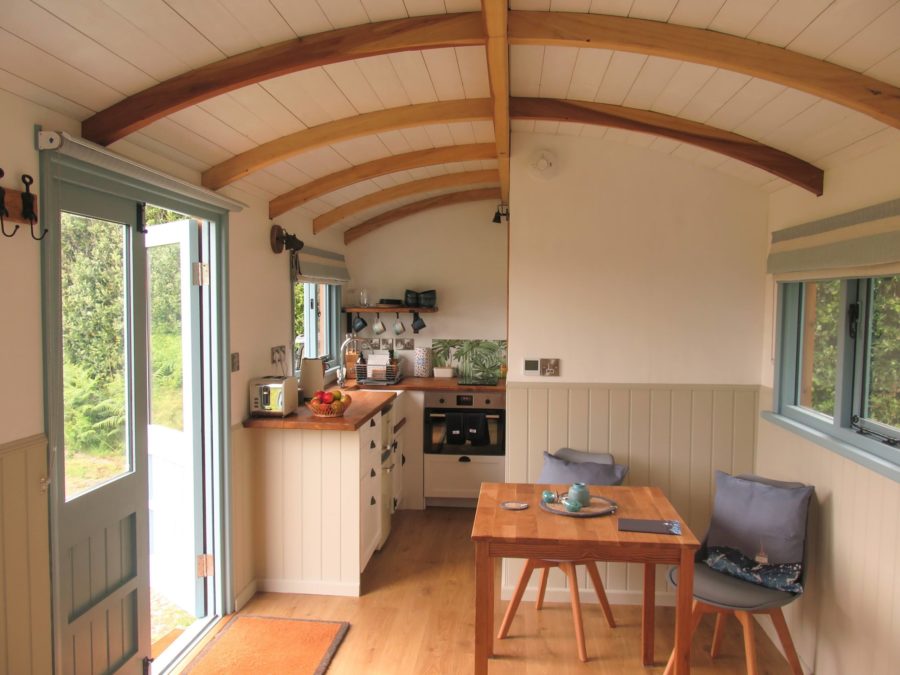
Images courtesy of St Martin's Vineyard
Tillingham, Peasmarsh, East Sussex
With gorgeous views over ancient forests, Romney salt marshes and the river valley, this 13th century farm sits on 70 acres, producing biodynamic wines grown by ancient, minimal-intervention methods. There’s a wine shop, restaurant and bar, delicious pizza in the hay barn, and bunches of wildflowers here and there. You sleep in one of 11 rooms in the old hop barn, with their retro- style furniture, Roberts Radios, natural toiletries from Margate-based Haeckels, and some with freestanding bath tubs or terraces. And if you love the sheepskin rugs, they are on sale in the shop.
Dine on delicious, super-seasonal, zero- waste, plant-based dishes such as beetroot labneh and pistachio. And for even more back- to-nature vibes, from May till the end of September you can sleep out in one of the two bell tents.
Eco credentials:
Farm-to-fork restaurant menu, mostly plant-based and designed by zero-waste pioneering Head Chef Brendan Eades (formerly of London’s famously zero-waste restaurant Silo), who uses every element of each vegetable grown in their own walled garden, supplemented by local suppliers. Seasonal cocktail ingredients come from the garden, or kitchen surplus; wines from their own vineyard and other low-intervention producers. Meat is reared exclusively on their estate, fish (mostly overlooked species) are supplied by Botterell’s Boats in nearby Rye Harbour.
Doubles from £175, B&B
Top tipple: Field Blend Two, a vegan mix of Chardonnay, Chenin Blanc, Pinot `Meunier, Pinot Noir and Gamay – and very light at 10.1% abv
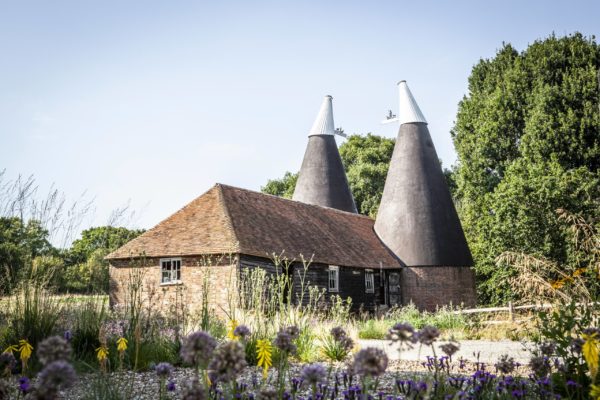
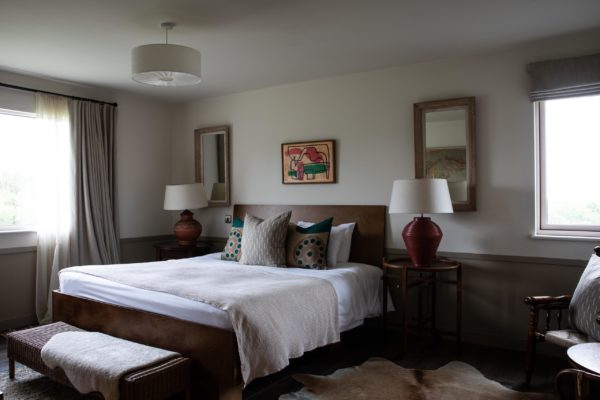
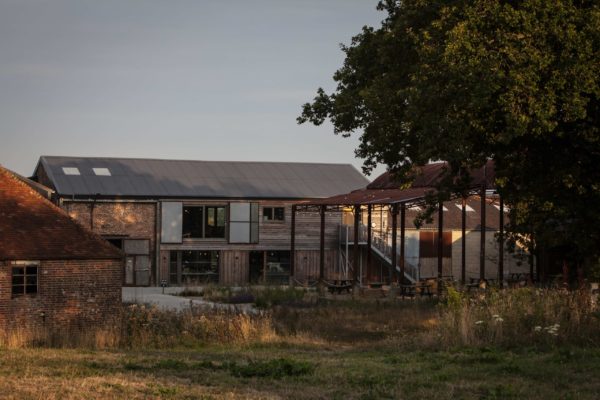
Images courtesy of Tillingham
Rathfinny Estate & Vineyard, Alfriston, East Sussex
Another Sussex success, this family-run, award-winning, B Corp-certified vineyard produces some of England’s best sparkling wine. Set in the South Downs National Park, near the South Downs Way, the pretty village of Alfriston and the famous Charleston (Sussex retreat of the Bloomsbury set), Rathfinny’s 600 acres have the climate and chalk soil for Champagne-beating wines.
You could just book a wine-tasting tour and dine in the fabulous Tasting Rooms (Wild turbot with deep sea mussels fennel and buckthorn oil; quince ice cream and parsnip crisp and buckwheat crumble) but for the full experience, stay the night in the restored Flint Barns, on the west of the estate, or the cosy self-catering cottage (sleeping four) next door.
Flint Barns has 10 simple rooms ranging from snug singles to family rooms with bunk beds, and courtyard or vineyard views. Expect open fires, beamed ceilings and exposed brickwork, wrought iron beds and colourful throws, with a communal living room downstairs for sofa lounging by the fire, and a dining room of refectory stables for sociable eating,
Eco credentials:
The world’s first sparkling wine grower to achieve B Corp status, Rathfinny have to adhere to the ‘triple bottom line’, which means considering people and planet as well as profit. Buildings were constructed with locally sourced flint and oak, they employ local staff, and Sussex wines have a PDO, Protected Designation of Origin, which have to meet strict criteria.
With the aim of becoming the world’s greenest vineyard they use slightly lighter bottles than standard (bottles and packaging have the biggest environmental impact), use modern, less-polluting tractors, and have installed photo voltaic panels (converting thermal energy to electricity) for energy. They limit the use of herbicides and chemicals, encourage parasitic wasps which help reduce pests naturally, and are self-sufficient in water.
Doubles from £110, B&B
Top tipple: Rathfinny 2019 sparkling rosé
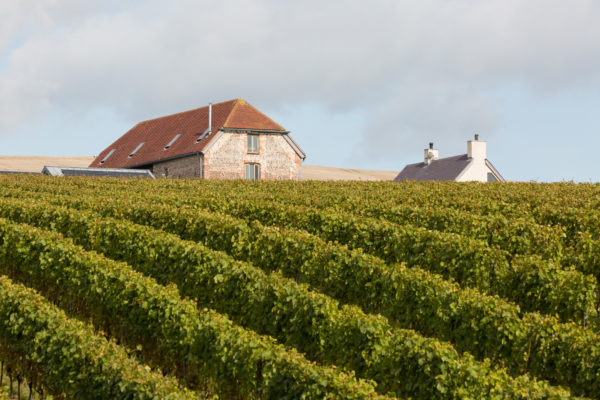
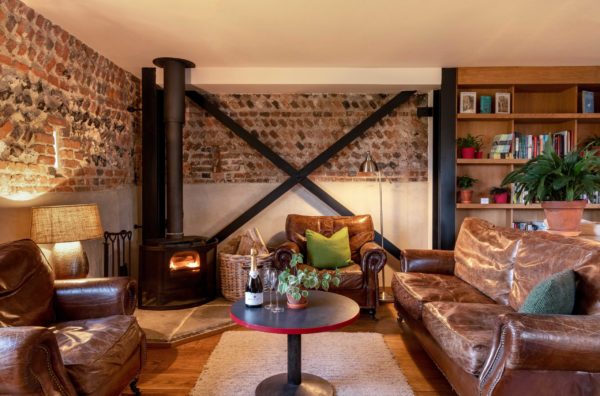
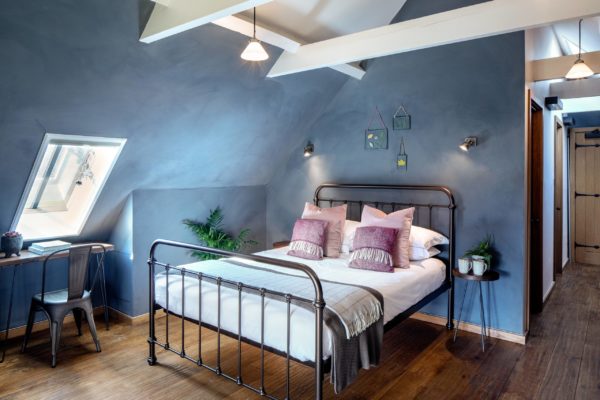
Images courtesy of Rathfinny Estate & Vineyard
Lympstone Manor, Exmouth, Devon
Michael Caines is the feted Michelin-star-winner chef/ owner of beautiful Lympstone Manor. Overlooking the Exe Estuary, it is one of the country’s few luxury hotels to own its own vineyard, and a member of Relais & Chateaux, which is another culinary stamp of excellence. Caines planted 17500 vines here five years ago and they have just produced their first traditional method sparkling wine, to join their award-winning red, Triassic pinot noir, and Isabeau rosé.
Dine in the Manor (fancy) or the Poolhouse (casual), and you can choose to sleep in five-star luxury in the Georgian manor house – all elegant hues, soft velvets, chandeliers and free-standing bathtubs – or in one of the six new shepherd’s huts, surrounded by woodland, with firepits, and an outdoor heated pool on your doorstep.
Eco credentials:
They grow grass between the vines to encourage biodiversity, use low intervention production methods, avoid single use plastics, organise beach cleans, and run the Michael Caines Academy at Exeter College. They support World Oceans Day and The Calvert Trust for people with all kinds of disabilities, and Caines is vice-president of Michael Morpurgo’s Farms for City Children charity.
Hotel doubles from £445, B&B, huts from £530 B&B (sleeps four)
Top tipple: Lympstone Classic Cuvée
